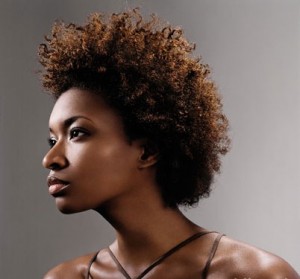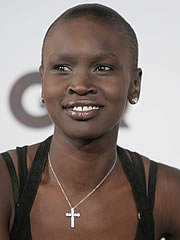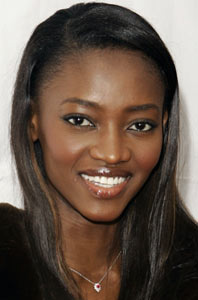Two daughters of promise, who live after the legacy their fathers left behind, dedicated time yesterday to inspire promise and hope in the hearts and minds of those who gathered.
Large crowds came out for the fantastic event, “Daughters of Promise: In Our Own Voice,” sponsored by Towson University’s Women’s Center.
In front of a diverse crowd on Thursday Oct. 15, 2009, the daughter of Robert F. Kennedy, Rory Kennedy, joined the daughter of Malcolm X, Ilyasah Shabazz, for a compelling speaking event at Towson University.
The evening was bright, and it overflowed with funny anecdotes, inspirational quotes and unforgettable wisdom.
Rory Kennedy presented information on rape oversees committed against women as young as five, who are then rejected and forced to carry their burden all alone.
She shared her documentary, in which she covered the story of a young girl, Ali, who was raped at the age of 9, contracted HIV and sought comfort in the assurance of her father, who painfully rejected her.
Veronica Wilson, a senior at Towson University, said that the event changed her life.
“I am blessed to have been a part of this historic day at Towson,” said Veronica. “The mere act of having these two women of stellar accomplishment in this room speaking to all of us, inspires me to want to leave here and change the world.”
If only more people like Rory Kennedy stood up for the rights of the disenfranchised around the world, maybe this epidemic could be brought to a gradual end.
Ilyasah discussed the horrors of witnessing her father’s assassination at the young age of 3.
She discussed common misconceptions of her father, such as the notion that he changed his ideology following his excursion to Mecca.
Ilyasah spoke about the trauma her mother experienced after losing her husband in her 20s and having to raise six daughters by herself.
Her mother expected no assistance from a “diabolical, racist” government that she and her husband had fought relentlessly against.
She put all of her six daughters through school and still went on to acquire a Ph.D afterwards.
But by far, the most compelling segment of Ilyasah’s speech involved the danger of not knowing one’s history.
She criticized the American educational school system, which has strategically stripped African-Americans from the integrity of their history.
“Before there was Harvard, there was the University of Timbuktu,” she said.
There were a few disapproving expression from those, who appeared recalcitrant in their attempt to hold on to denial.
Ilyasah persisted that Black-Americans have been purposely lied to by the American government about their true identity, and this fostered a spirit of detachment amongs blacks.
“When you here that Africans are dying of poverty and starvation, you say it doesn’t bother you, because you do not see that African as a reflection of yourself,” she said.
Ilyasha argued that not only does miseducation encourage detachment, but it also fosters self-hatred and a lack of confidence among blacks, citing to the study that was reconducted in 2006, in which young African-American girls were shown a white barbie doll and a black barbie doll.
They consistently said the white doll was beautiful and pretty, while the black doll (a reflection of themselves) was ugly and bad.
Ilyasah said that any African-American or Caucasian, who either does not know the true history of blacks, denies it, or teaches the lie that the history of Africans began in slavery, rather than in royalty and wealth as educated kings and queens in Africa, is doing themselves and those around them a great disservice.
Ebony Oakcrum, a junior at Towson University, enjoyed Ilyasah’s presentation.
“I was amazed,” said Ebony. “She said some tough things that I think were hard for some people to swallow, but that’s typically how the truth is, especially when some people have dedicated so much time and effort to hiding it.”
Dr. Phyllis Freeman from the Women’s Center, presented a brief poem to end the event in style, and the daughters greeted guests, engaged in conversation and took pictures.
Photo by Success O.










